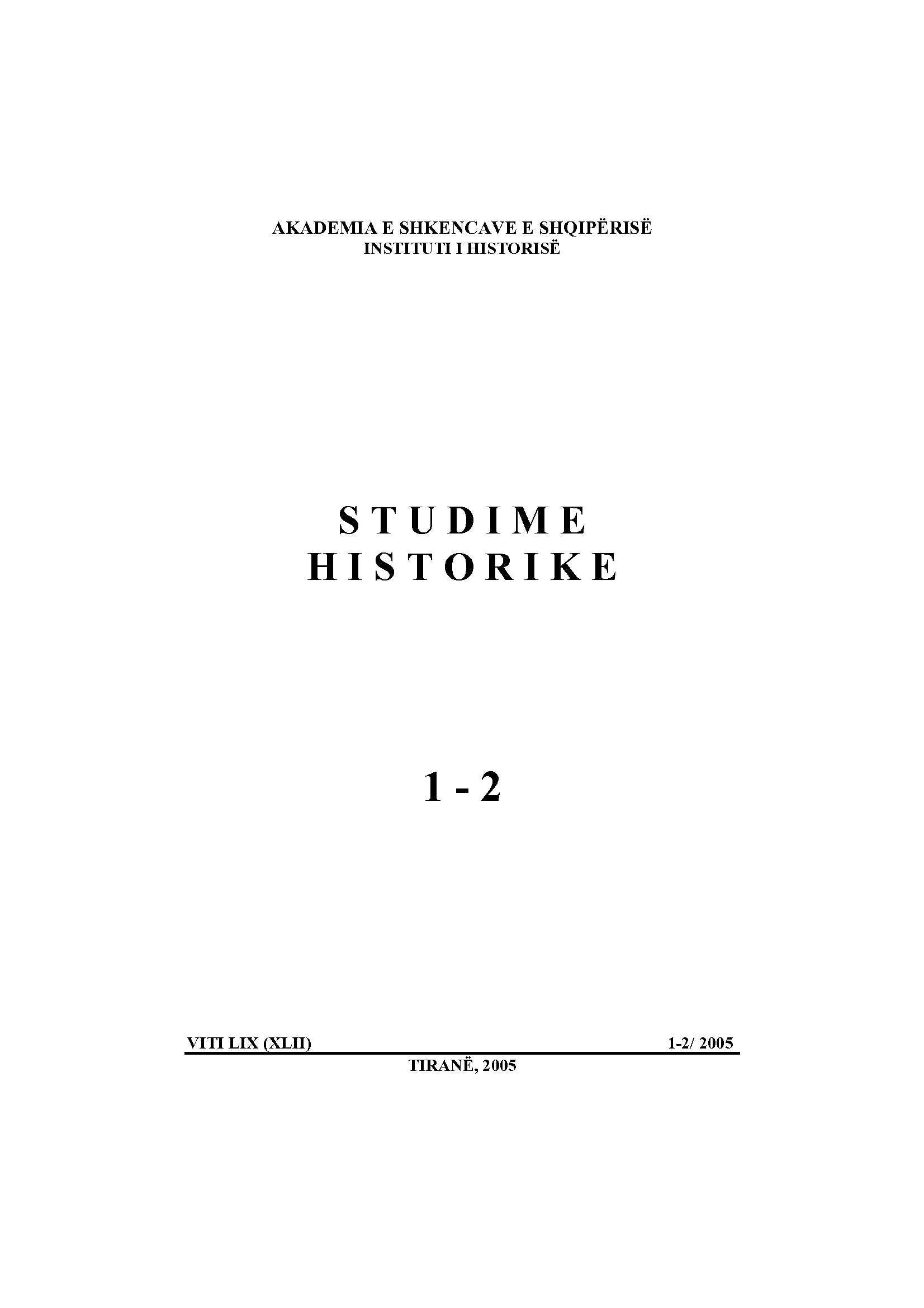Problemi i partive politike (dhjetor 1944-dhjetor 1946)
The Problem of the Political Parties
Author(s): Demir DyrmishiSubject(s): History
Published by: Qendra e Studimeve Albanologjike
Keywords: Albanian Communist Party; political pluralism; Albanian National-Liberation Front; anti-democratic law; totalitarian law; Uprising of September 9; 1946 in the town of Shkodër;Albania; Albanian History
Summary/Abstract: According to the declaration of the General Anti-Fascist National-Liberation Council in the meeting of Berat in October 1944 to the organizations of Balli Kombëtar (National Front) and Legaliteti (Legality) was not permitted to form political parties, because they were considered as fascist and profascist parties. That’s why the declaration was not welcomed by the intellectuals, who during the War had taken part in these organizations or had taken a neutral stand. They, immediately after the end of the war, began to propagandize that in Albania there was not freedom and democracy, that the National-Liberation Front was not a democratic organization, because behind it was hidden the Communist Party. Such intellectuals didn’t find proper neither the first laws of the Democratic Government which were approved during the months December 1944 – January 1945. These opposition thoughts set in motion the leadership of the Communist Party and the government of Enver Hoxha to give the due response and to define such intellectuals. To this end the higher leadership of the CPA activated, its most active elements, of the Front and the General Council as Omer Nishani, Ymer Dishnica, Sejfulla Malëshova, Medar Shtylla, Selaudin Toto, etc., who with the help of the only press, the government one, tried to argue that the intellectuals dissatisfied with the new power were ballists and zogist (follower of the king Zog) who had tied their destinies and that of Albania with fascist Italy and nazi Germany, that Albania would not be chattel of barter for the foreigners and the traitors, that we don’t need other political parties, so, it was not requested a theoretical democracy, but a practical one. They advised the political adversaries to give up from the swindles and the intrigues and to roll up the sleeves and to work for the reconstruction of Albania destroyed by the occupiers and the traitors to one’s country.[...] The opposition deputies, during the proceedings of the Constituent Assembly opposed to every anti-democratic and totalitarian law. Their thoughts not only were not taken into consideration, but they were qualified by the communiste deputies as enemies and traitors to the country. The illegal opposition deputies saw very clearly that in Albania was established the dictatorship and not the democracy. [...] The opposition deputies organized the Uprising of September 9, 1946 to seize the town of Shkodër, but it was defeated since the first moment by the government forces. In December of the year 1946 the communist leadership made the communist regime with a democratic façade. It issued the law on the political parties in a time when the political adversaries were liquidated in armed clashes or through the courts. Consequently, there a were not formed other political parties and the CPA led the country and ruled it with a rod of iron for more than 45 years.
Journal: Studime Historike
- Issue Year: 2005
- Issue No: 01-02
- Page Range: 109-126
- Page Count: 18
- Language: Albanian
- Content File-PDF

